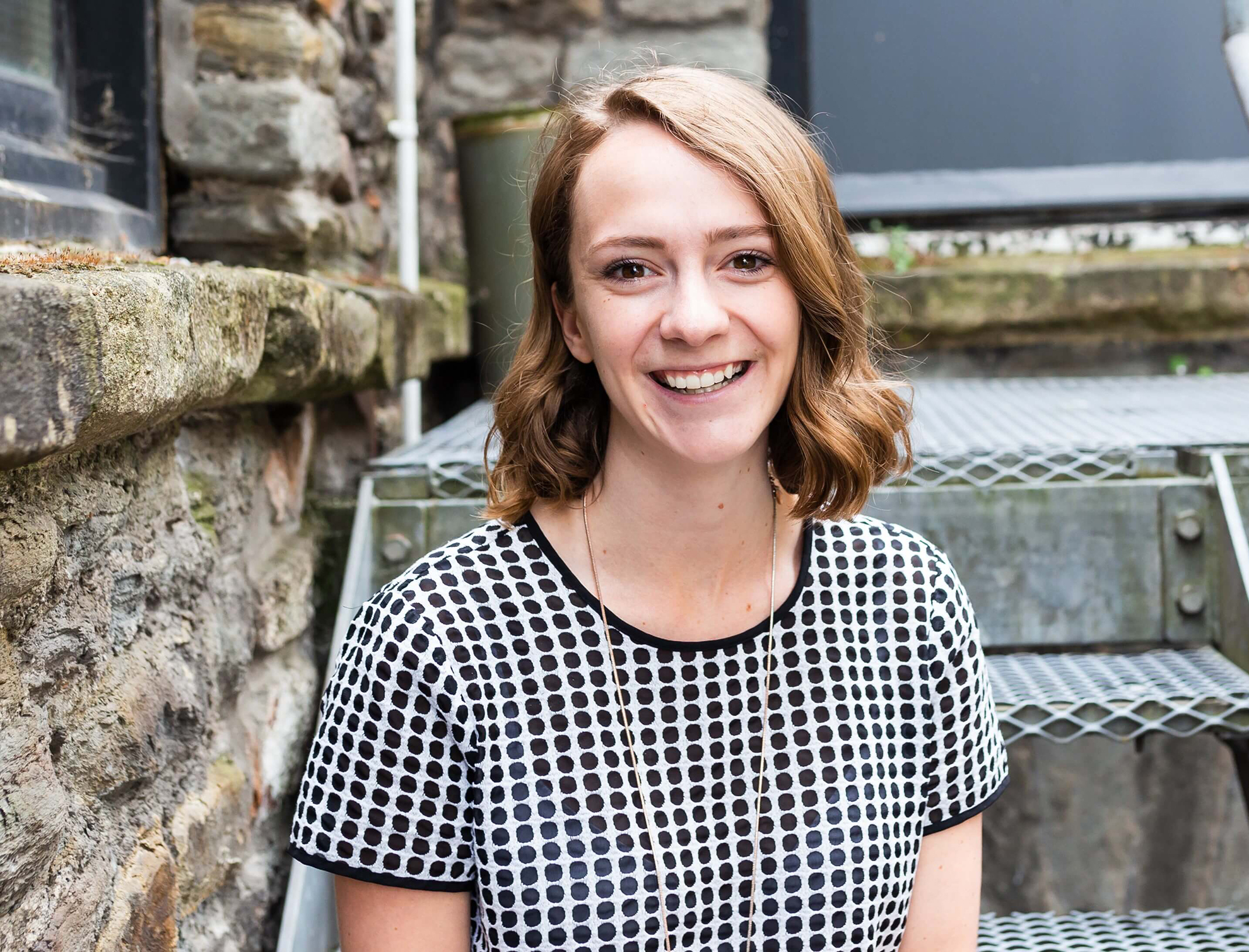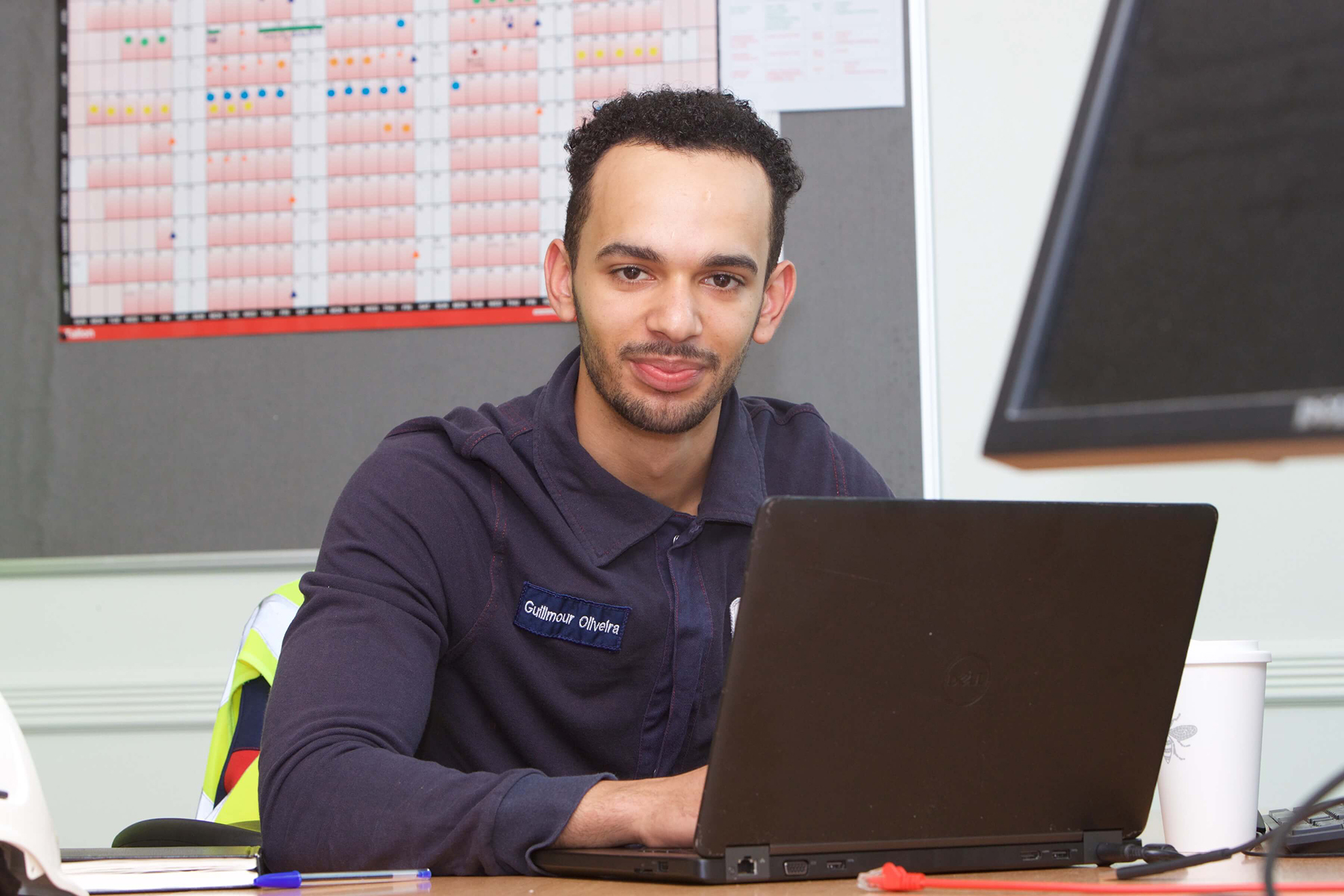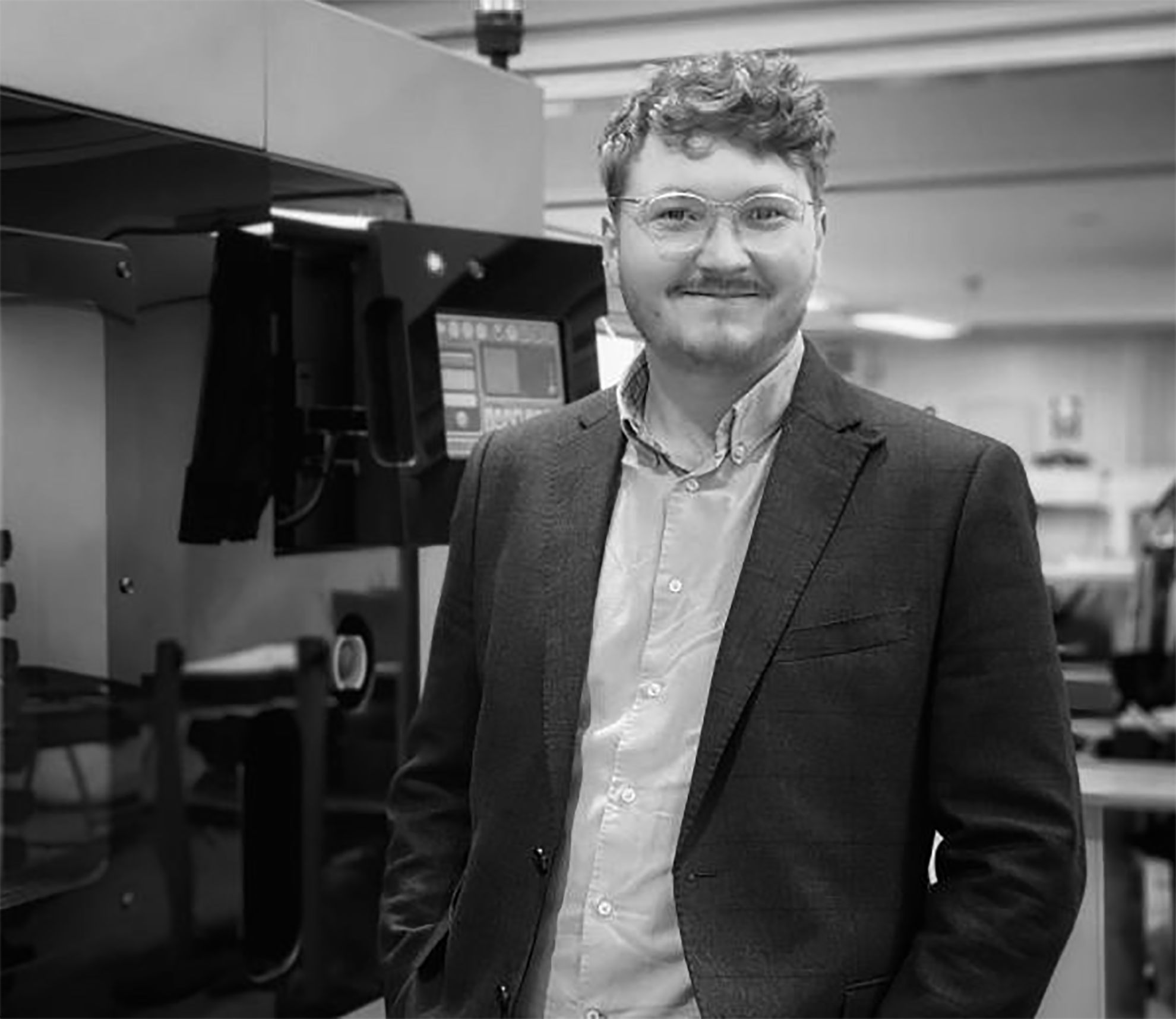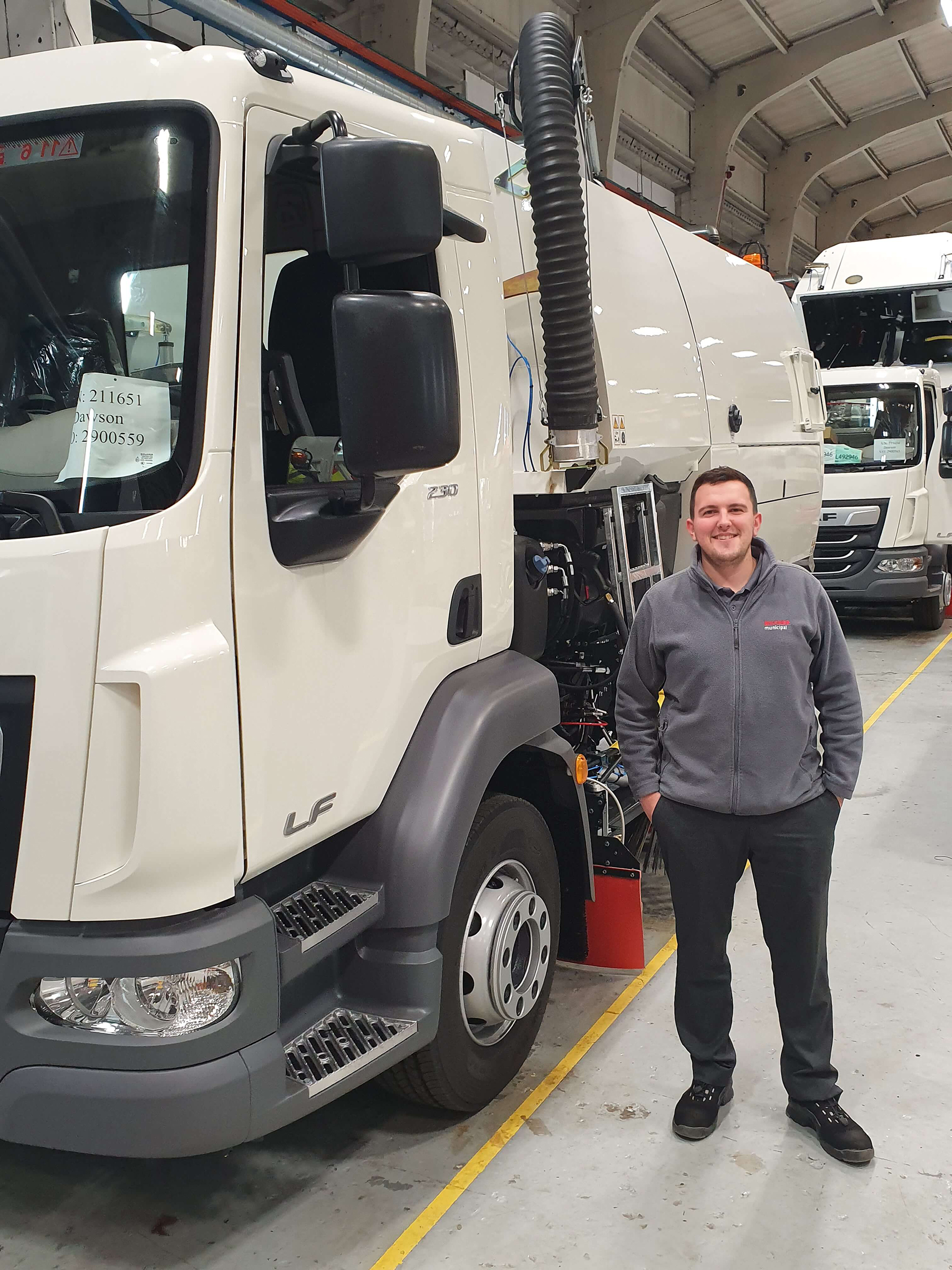Teachers inspiring fascination with the world of making things
The factor most likely to propel a young person towards a career in manufacturing or engineering is the influence of a family member. But not far behind come the teachers who inspire fascination with technology, science and the world of making things.
Of the 107 people in our survey, 17 highlight the special role that secondary school teachers played in their career choices. For instance, Lydia Cordice - who works at the historic Cadbury chocolate factory in Birmingham – singles out Helen Lindsay-Clark, a teacher at Wycombe High School, for giving her the idea of studying for a degree linked to the food industry and then perhaps working in this sector.
“She opened my eyes to what this branch of manufacturing was all about,” says Cordice. “My teacher was enthusiastic and inspiring. She stood out from most of the other teachers who had minimal or no experience of industry and could say little about it.” After a degree in food science and nutrition at the University of Leeds, Cordice joined the US food group Mondelez, where she is a sourcing manager.
Hayley Maynard says that in Vandra Carter she had a “fabulous” design and technology teacher at Colyton Grammar School in Devon. “She introduced me to product design and opened my eyes to the possibilities beyond architecture and fine art. Without her, I would not be doing the work I love," says Maynard, who, after a degree in product design, works at design consultancy Kinneir Dufort in Bristol.
 Hayley Maynard says her teacher Vandra Carter guided her towards "work I love" in product design
Hayley Maynard says her teacher Vandra Carter guided her towards "work I love" in product design
Had it not been for an outstanding teacher, Avese Umar may well have failed to discover a calling for chemistry. While at Abraham Moss Community School in Manchester, Umar was impressed by “an inspiring chemistry teacher who made the subject come alive”. He says of Adam Mashater: “His teaching style, devotion to the teaching and his genuine interest in chemistry made the subject stand out.” A few years later, his teacher’s ideas led Umar into his current job as laboratory technologist at HMG Paints, which he joined as an apprentice in 2016.
The key educators for people moving into manufacturing are not always involved in science and technology. Chris Lock says he “fell in love” with 3D printing through the influence of an art teacher at Bishop’s Stortford College in Hertfordshire. Now working as a rapid prototyping technician at Complete Fabrication, a company near Cambridge, Lock says Richard Honey “was a hands-on teacher” who “advocated both using modern technology and being creative”.
 Of the 107 people in Made Here Now's survey of how young people find jobs in manufacturing, roughly one in six cite the influence of a teacher
Of the 107 people in Made Here Now's survey of how young people find jobs in manufacturing, roughly one in six cite the influence of a teacher
Katie Howard says of her job developing gyroscopes and other navigational aids for Silicon Sensing, a multinational manufacturer with a UK base in Plymouth: “It's fascinating to work with a range of companies with different needs. I could be working with a company making aircraft in the morning before switching to a different application for tractors in the afternoon.”
Howard says she owes her interest in technology to Paul Bearham, an electronics teacher at Brannel School near St Austell. “He was good at explaining concepts in simple terms, making engineering seem more attainable…. Mr Bearham's ideas stayed with me.”
Another person with a special memory of a teacher is Hong Kong-born Anthony Chow, who came to the UK aged 13 to go to boarding school at Stonyhurst College in Lancashire. A key influence was Rob Youlten, a maths teacher who organised the school’s engineering society. “Mr Youlten was a huge inspiration. He had a big interest in the practical side to maths. He encouraged his pupils to ask questions about how things work,” Chow says.
 Hong Kong-born Anthony Chow found a school maths teacher "a huge inspiration" who encouraged pupils "to ask questions"
Hong Kong-born Anthony Chow found a school maths teacher "a huge inspiration" who encouraged pupils "to ask questions"
After a four-year master's degree in engineering at Cambridge University, Chow works at a train factory in Derby run by Alstom of France. He uses analytical tools to link the vast amount of information describing the design and production of rail equipment such as locomotives and carriages with the way the products are used once in service.
Tony Ryan, chief executive of the Design and Technology Association, which has a special interest in how the subject is taught in schools, says stories like these illustrate the key role often played by teachers of technical subjects.
“Design and technology teachers are crucial to stimulating an interest in careers in design, manufacturing, and engineering. The findings [from the Made Here Now survey] underline why the cuts in recent years in design and technology teaching in schools are of such concern. As the UK emerges from the health crisis, I hope we will see more recognition of the importance of young people gaining key technical skills that they can apply to jobs in later life.”
Industry roles welcome UK newcomers
 Work at a leading UK maker of leather goods has been sufficiently compelling to divert Riina Raabis from an early goal to become a history professor
Work at a leading UK maker of leather goods has been sufficiently compelling to divert Riina Raabis from an early goal to become a history professor
While at university in her native Estonia, Riina Raabis had wanted to become a history professor. “If anyone had told me I’d soon be working in manufacturing, I’d have said that’s never going to happen.” After moving to the UK in 2014, Raabis is now marketing manager at G.Ettinger, a maker of leather goods such as wallets and accessories with a factory in Walsall and headquarters in London.
“I was captivated by the company's history and global reputation for excellence,” says Raabis. “It seems to me that the ‘Made in Britain’ label is increasingly important both in the UK and around the world. When I go to the factory, I love the craftsmanship and the pride with which people make the products.”
Raabis is among the 13 people in the Made Here Now survey who were born outside the UK but came to this country to forge a career in manufacturing. Another of the 13 – who between them hail from 11 countries – is Guillmour Oliveira, a technical management trainee at the Cargill chicken processing factory in Wolverhampton.
Mozambique-born Oliveira went to a school in Maputo where he says he was encouraged to learn technical subjects such as physics. “I have a long-term interest in engineering – I was always especially fascinated by the automotive industry for instance.”
His choice of job might seem odd for someone who for part of 2018 was vegan. “I gave up meat and other animal-derived foods after thinking that meat isn’t a sustainable industry in the long run. But I went back to meat after a family holiday in Portugal when I rediscovered that I liked eating it.”
He says of his role: “I want to use my skills to create meat products in as safe and environmentally acceptable way as possible. I feel I can make a positive impact.”
 From a spell a few years ago as a vegan, Guillmour Oliveira now works in chicken processing - where he says he uses engineering skills to "make a positive impact"
From a spell a few years ago as a vegan, Guillmour Oliveira now works in chicken processing - where he says he uses engineering skills to "make a positive impact"
Alex Gorgan is chief operating officer at ApparelTasker, a London clothing business. Growing up in Romania, her mother a seamstress in textiles and her father a lorry driver, Alex Gorgon developed a “twin passion” for design and sustainability. In 2018, she moved to ApparelTasker, which is committed to environmental responsibility, focusing on reducing energy consumption and using sustainable materials. She says her job “is perfect for me”.
Having moved to the UK from China in 2012 to do a PhD at the University of Manchester, Suhao Li started at Manchester-based 2D-Tech – a leader in graphene production – in 2018. Graphene is a recently discovered material – just one atom thick – with many potentially important properties. Much of its development has been done in Manchester.
After a degree in bio-functional materials at Beijing University of Chemical Technology, Li’s PhD involved study of elastomer graphene composites. “I wanted to work in graphene and 2-DTech was an obvious choice. Manchester is known in China as the home of graphene. We are trying to commercialise a material that could eventually become an important part of everyday life.”
For Tara Benkel, French physicist and engineer who moved to the UK in 2020, a job in a “potentially life-changing sector” proved irresistible. “It was a great opportunity to use my specialist knowledge. I feel I’m doing something useful.”
Benkel works at Tokamak Energy, a developer of small nuclear fusion reactors (tokamaks) based near Oxford. Fusion machines use the same process that powers the sun. Still in development, they could provide a new source of green, zero-carbon energy.
Benkel has a PhD from Grenoble Alpes University and spent time studying at the French national laboratory CNRS. In 2014 she spent five months working on superconducting magnets at Oxford Instruments based near Oxford. “I enjoyed the work and liked living in this part of Britain,” she says. This made it easy, she says, to say yes when Tokamak Energy offered her a job.
Entrepreneurial mindset produces winners
While the standard route for people to follow into work is to join an established company, two people in the survey decided against this route and set up their own business instead.
Rose Dyson, 21, is chief executive of cosmetics maker Pura, based in Barnsley, which she started at 15 while still at school. The spur for her venture was an unusual competition organised by her school which challenged pupils to think of a business they could start with just £25.
 As one of the youngest people in the Made Here Now survey, Rose Dyson has achieved success through running her own cosmetics business
As one of the youngest people in the Made Here Now survey, Rose Dyson has achieved success through running her own cosmetics business
Pura manufactures relatively low-cost skin treatments using natural materials and without animal tests. The goods are sold in plastic-free packaging. “I'm glad I took the plunge,” she says. “Setting up the business has given me a great opportunity to be creative.”
Jack Cornes, who is 22, took a still more radical step than Dyson – by setting up a business in a sector that barely exists. Hausbots – where he is managing director and co-founder – makes a new type of robot for painting houses. Cornes describes painting and decorating as a “huge and fragmented industry with little or no innovation”.
After leaving school at 17, he decided against university, opting instead for a role at IBM selling software and services and then joining a drinks company as an account manager. “I had known for some time I wanted to be an entrepreneur. Getting a job [rather than continuing with education] was the best way to start.”
Of the 105 other people in the survey, eight besides Dyson and Cornes have senior management roles in their respective companies.
Fred Wray is operations manager at Digital Manufacturing Centre, based in Silverstone, near Northampton. Digital Manufacturing Centre is a new business set up by entrepreneur Kieron Salter to make automotive and industrial components, mainly using 3D printing. Before joining Salter’s business Wray gained a master’s degree in mechanical engineering at the University of Sheffield, later joining 3D printed parts maker 3T-AM.
 A senior job at a new factory making 3D-printed car parts proved "impossible to turn down" for engineering enthusiast Fred Wray
A senior job at a new factory making 3D-printed car parts proved "impossible to turn down" for engineering enthusiast Fred Wray
Discussing his job – which he started in October 2020 – Wray says: “I’ve been given the chance to design and build from scratch a new factory with machines that are among the best in the world. It’s a fantastic opportunity which someone with my interests would find impossible to turn down.”
Working at a much older enterprise than Wray’s business is Tom Boyden, heavy foundry manager at William Cook, a Sheffield maker of steel castings started in 1840. When he left school at 17, Boyden chose not to go to university. “I wanted to get a job as I liked the idea of earning some money.”
After joining William Cook in 2011, Boyden, aged 28, was promoted to his management role in 2018. His predecessor had worked at William Cook for 46 years.
“It was thought unusual to have a man my age doing this job. In a team of 25 there was one person who was younger.” He adds: “I have had to prove myself. Most of the people I am working with are much more experienced. There are some strong-minded individuals among them.”
Combining workplace training and a degree is ‘good basis for the future’
Combining an apprenticeship with a degree has proved an attractive option for 10 of the 107 people in the Made Here Now survey. Two have gone a step further and completed – or embarked on – a postgraduate qualification.
Ken Collins’ career route has been far from straightforward. “If you’d told me at 16 that by the age of 30 I’d have two degrees and a good job in engineering, I wouldn’t have believed you,” he says. Collins works as a purchasing project leader at a factory in Stonehouse, near Gloucester, run by BorgWarner, a US automotive components company. He started at the plant in 2009 as an apprentice.
At school Collins says he “didn’t do particularly well academically” and failed to get useful careers advice – “especially about engineering”. After leaving school at 16, he did a college course in plumbing and construction but after failing to find work tried his hand as a machine operator in a steel components factory. “To my surprise I found the machine operator’s job suited me. I started to rethink what I wanted to do.”
In recent years Collins has studied mechanical engineering part-time at the University of Western England in Bristol, gaining undergraduate and master’s degrees.
Matthew Chapman is a manufacturing specialist – working on improving efficiency – at Johnston Sweepers in Dorking, near London. The company makes road sweepers and is owned by Bucher Municipal of Switzerland. He started there in 2011 as an apprentice and gained a BSc in engineering management from Portsmouth University, followed by a master's degree in lean enterprise at Buckingham University. Both sets of studies have taken place while Chapman continued working at Johnston.
 Triple whammy - Matthew Chapman is one of two people in the survey whose careers have been helped by an undergraduate and postgraduate degree, as well as an apprenticeship
Triple whammy - Matthew Chapman is one of two people in the survey whose careers have been helped by an undergraduate and postgraduate degree, as well as an apprenticeship
When at school Chapman had thought about going to university but opted for an apprenticeship instead. One strong influence was his grandfather who worked as an engineer in the aerospace industry, helping to develop components for Concorde. “My grandfather used to tell me a lot about his job, and this made me think engineering would be a good sector to move into.”
Isabel FitzGerald, who is 21, is a big advocate for combining a degree with an apprenticeship. Alongside her job at the Rolls-Royce aeroengine maker, she is studying for a degree in engineering business management at Warwick University. A Lego and robot enthusiast as a child, FitzGerald grew up in Derby and went to a comprehensive school until she was 14, when she transferred to the JCB Academy in nearby Rocester.
“I’m happy that in doing the apprenticeship and the degree I’m learning about a mixture of engineering and management,” she says. “I like the combination and I think it will provide a good basis for the future.”
